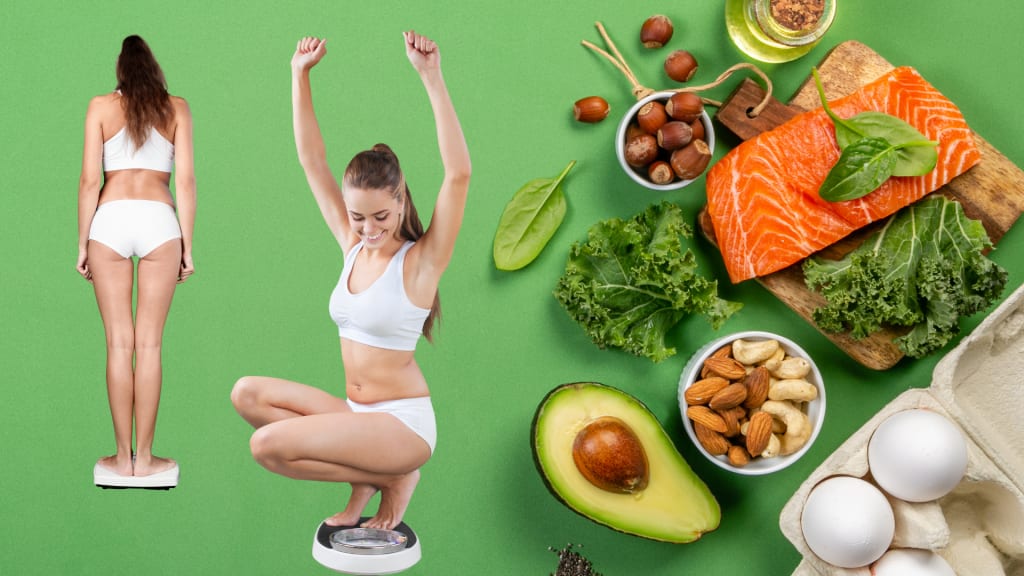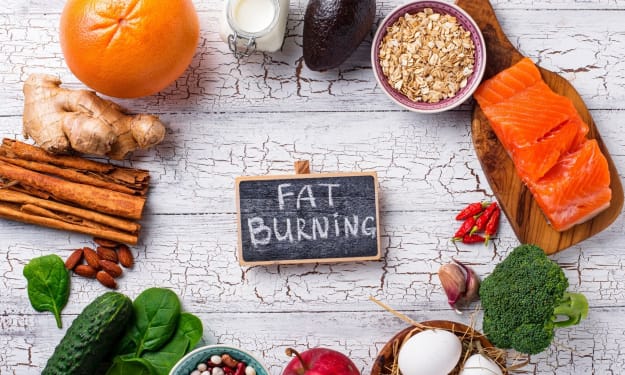10 Tips For A Successful Weight Loss Plan On A Ketogenic Diet
lose 80 lbs in 4 months

If you’re like me, you’ve probably spent the past few years hearing about the miracle benefits of the ketogenic diet but have never actually tried it for yourself.
This all changed when I found out that my friend, who had struggled with weight loss, lost 80 pounds in 4 months after switching to this new diet plan!
After talking to him at length about it, I finally decided to give it a try, and man, am I glad I did!
In less than one month on the ketogenic diet, I lost over 10 pounds myself!
There are The 10 Tips For A Successful Weight Loss Plan On A Keto Diet
10) Don’t Focus on Calories
Focus on eating whole, unprocessed foods instead of obsessing over calorie counting.
While counting calories is one way to monitor your nutrition, it’s not a good long-term strategy.
There are plenty of other factors that influence weight loss and weight gain—and food quality plays an essential role in both scenarios.
For example, as you get older, your metabolism slows down, and you burn fewer calories per day (about 1 to 2 percent per decade after age 30).
If you eat fewer calories than you burn off every day, you will lose weight—but if you eat too few calories or cut out too many nutrients from your diet, your body will go into starvation mode and slow down your metabolism even further.
9) Track Your Progress (and Then Track It Again)
If you are going to be on a keto diet, it is good to use an app that helps you track your progress.
My favorite tracker for iOS is Cronometer.
This will help you track how many carbs you’re eating and help prevent any health issues that may arise from not keeping your carb intake low enough.
8) Keep Cheat Meals in Check
While it is okay to have a cheat meal from time to time, be careful not to go overboard.
If you’re eating keto, you’re focusing on healthy fats and proteins—not loading up on carbs to feel better about yourself.
So if you find yourself cheating on meals a little too often, step back and make sure that’s really what your body needs at that moment.
7) Take Advantage of Keto Diet Recipes That Work
Because keto is such a low-carb diet, you have to get creative with carb sources.
Two good things happen when you’re on a keto diet: Your appetite goes down, and you don’t want to eat as much junk, Dr. Westman says.
Also, some people develop hypoglycemia—low blood sugar—because of reduced food intake.
6) Transition Slowly From a Low Carb to Keto Diet
Carbohydrates are your body’s primary energy source, but that doesn’t mean you have to give them up entirely.
Instead, transition slowly from a low-carb diet to a keto diet by gradually reducing your intake of carbohydrates over time until you’re eating only keto-friendly carbs like broccoli and leafy greens.
This will help reduce some of the unpleasant side effects of transitioning to a keto diet and make it easier for you to stick with it in the long term.
5) Adjust Caloric Intake During the Transition Period
The transition from a high-carb diet to a ketogenic diet can be tricky.
For example, if you eat about 10 grams of carbs for breakfast and lunch and another 20 grams for dinner, that doesn’t mean you get 40 grams of carbs in total, but instead 20-30 grams.
You might even find yourself eating fewer than 10 grams of carbs during your day. Don’t worry, it happens!
4) Beware of Hidden Carbs
When you start a keto diet, it’s easy to see how many carbs you’re eating because they’re all listed on labels.
When you eat a lot of carbs from processed foods, you might not realize that a good portion of these carbs is often hidden in food items that don’t have labels.
For example, just because there is no sugar in something doesn’t mean it has no carbs.
Avoiding them requires a keen eye and some research. It can be time-consuming but worth it if you want to reach your goals!
3) Eat Enough Protein!
Proteins provide our bodies with building blocks and a source of energy.
Eat too little protein, and you’ll be weak and sluggish; overeat and balloon.
Ideally, you want to aim for about one gram of protein per pound daily bodyweight.
For example, if you weigh 180 pounds, that translates to 180 grams of protein each day.
Remember that all meat is high in fat—so don’t go overboard!
2) Test Yourself Before and After Starting a Keto Diet Plan. You Might Be Surprised.
The keto diet is a low-carb diet where the body produces ketones in the liver to be used as energy.
It’s essentially a very low-carb, high-fat diet with moderate protein. These ratios of macronutrients are roughly 4:1 fat/protein and 1:1 carbs/protein.
Some variations can be followed for different goals.
These include but aren’t limited to Keto diets for athletes, Keto diets for cancer patients, and even something called a ‘dirty keto’ diet (for more on these variations, visit the keto diet app).
By strictly limiting carbohydrates in your daily diet, you can force your body to burn fats as energy instead of carbohydrates.
1) Use This Macro Calculator to Customize Your Keto Diet Meal Plan
How many grams of fat, protein, and carbs do you need in a day?
This keto calculator will tell you exactly what your macros should be to reach your goal weight.
It’s essential to eat enough protein on a keto diet since it helps with satiety and keeps you full for longer—that’s why we recommend keeping your protein intake between 15 and 30 percent of your daily calories.
We used 25 percent as our target number here because it’s reasonable to assume that someone on a standard American diet derives about 20-25 percent of their daily calories from protein.
About the Creator
Happy Life Official
I write about relationships, health, happiness, and much more to ease your life routine.






Comments
There are no comments for this story
Be the first to respond and start the conversation.